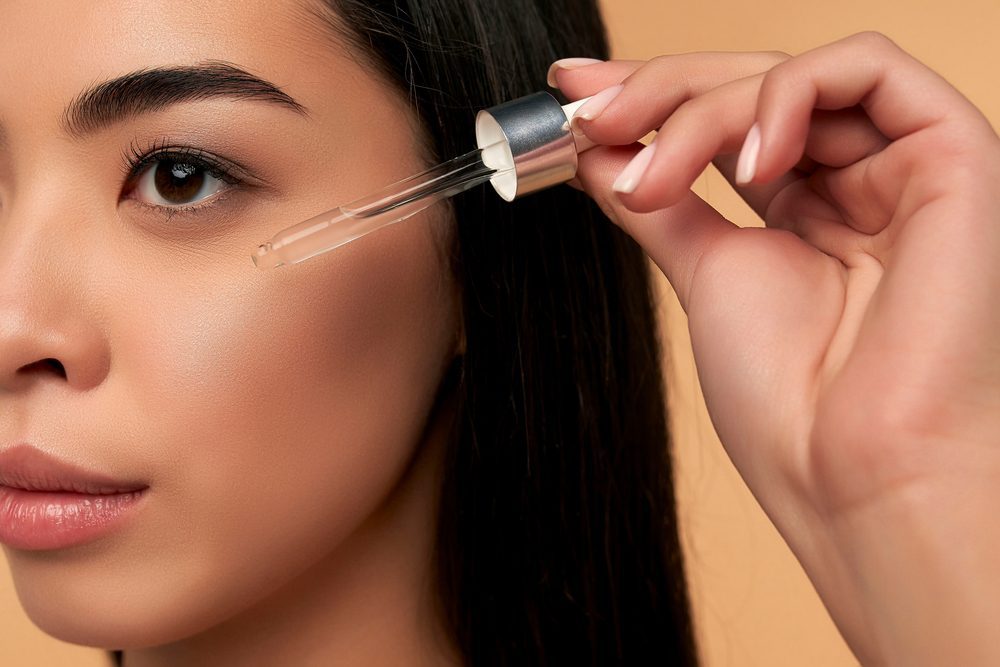
As you get further in life, you begin to see early signs of aging, one of which is the loss of skin elasticity. You may have noticed that your skin doesn’t bounce back as it used to, especially on your face.
However, there is no need to panic and feel discouraged, as there is a way to improve your skin’s health. Let’s discover how to improve skin elasticity on face.
How to Improve Skin Elasticity On Face
When dealing with the loss of skin elasticity, some of the best ways to improve it are:
- Get more sleep at night.
- Always apply sunscreen.
- Eat antioxidant-rich foods.
- Apply retinol and growth factor serums
- Hyaluronic acid
Improving Skin Elasticity
Even though aging comes with loss of elasticity in our skin, more notably in our faces, it doesn’t mean there is no way to improve it. There are ways to bring some elasticity back to your skin, as aging is not the only contributing factor.
Other factors besides aging that lead to loss of skin elasticity are high UV exposure, lack of sleep, pollution, smoking, and improper diet.
While aging is a natural part of life, the other factors mentioned are not, meaning you can try and improve them. Below, you will find some of the best ways to restore your skin’s elasticity.
Get more sleep at night
Lack of sleep can lead to loss of skin elasticity because of the disruption to your circadian rhythms. The disruption of your circadian rhythms, in turn, leads to an increase in oxidative stress in your body, damaging your skin’s elasticity.
Your body and skin repair themselves during sleep when the production of proteins like collagen and elastin speeds up. Lack of quality sleep will affect the speed of protein production in your skin.
Ensure you get the recommended seven to eight hours of sleep every night for your skin to recover. Avoid using your phone at night and turn off the lights in your room, which will let your body fall into a relaxed state.
Always apply sunscreen
The environment impacts collagen and elastin since they are present in the dermis (the second layer of the skin). This impact can result in damaged skin that prematurely wrinkles and sags. The best way to aid this is to apply a moisturizer and a broad-spectrum sunscreen every day because UV exposure accelerates the loss of elasticity.
Make sure to apply your sunscreen daily with your other skincare products. Without sunscreen, the harm from exposure to UV rays will cancel out the effects of any other products you use.
Eat antioxidant-rich food
For maintaining optimal performance, your body requires lots of nutrients. If you don’t consume enough of the major food groups, your body will not have the resources and energy it needs to keep producing collagen and elastin.
Your body requires amino acids to produce collagen. Another cause for the loss of collagen and elastin is surface free radicals, which antioxidants can aid in absorbing. Eat antioxidant-rich foods like citrus fruits, red bell peppers, tomatoes, spinach, broccoli, berries, green tea, coffee, and dark chocolate.
Retinol and growth factor serums
Retinol is what most dermatologists recommend in your anti-aging skincare regimen. Retinol is a vitamin A derivative that might minimize the appearance of fine lines and helps the skin bounce back.
However, retinol is not always recommended for everyone, as it can damage the skin barrier and cause redness if your skin is overly sensitive. This is where growth factors come in as an excellent alternative to retinol for people with sensitive skin, as they are non-corrosive to your skin barrier.
You can use a growth factor serum to replace retinol in your skincare regimen. One excellent growth factor serum is the SkinMedica TNS Advanced+ Serum.
Hyaluronic acid
Lastly, we have the so-called “fountain of youth” – hyaluronic acid. Hyaluronic acid is a natural substance present mainly in the skin’s connective tissue, which maintains the skin’s moisture.
However, due to aging and UV exposure, hyaluronic acid depletes. Luckily, plenty of creams and serums with hyaluronic acid are available on the skincare market to replenish the substance in your skin.
Conclusion
Incorporating the solutions mentioned above into your daily routine will no doubt help with skin elasticity. The solutions we have included here are especially useful if you wonder how to improve skin elasticity on face, where signs of aging are the most noticeable.

